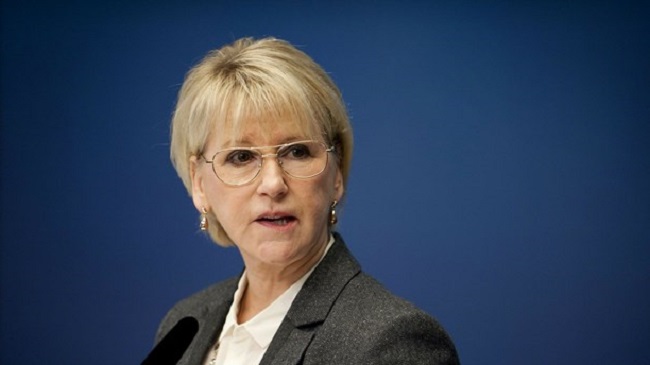Swedish-South Africa links go back a long way
One of the proudest moments in modern Swedish history was when Nelson Mandela visited Sweden in 1990 – the first country outside of Africa – after his long imprisonment.
Sweden’s relations with South Africa are unique. As far back as the 1960s, a country-wide Swedish anti-apartheid movement arose. In the early 1970s, we were the only western country to give official political support to the anti-apartheid movement, as well as massive financial support.
The victory for democracy in South Africa and the election of Nelson Mandela as President was an extraordinarily positive event for us Swedes as well. Since then, the relationship between our countries has evolved and we cooperate on a range of issues, not least trade and investments.
For these reasons, I am very happy to be here in South Africa today – the first minister from the new Social Democrat-led Swedish Government – for bilateral meetings and to participate in the Nordic-African Foreign Ministers Meeting. I am looking forward to discussions on issues of mutual concern. Below are four of the issues I will highlight:
Peace and security
Standing up to security threats is a joint responsibility and one in which the value of solidarity comes through. I commend South African efforts to help address conflicts on the continent. South Africa’s contribution to the UN force in the DRC is a case in point.
Threats like this must always be met with determination. Sweden remains committed to supporting African efforts at regional peacekeeping. Furthermore, to promote long-term stability and sustainable development in Africa, Sweden remains engaged in substantial development cooperation in the region, while simultaneously making great efforts to increase trade.
In Sweden’s neighbourhood, too, new threats have emerged. In Ukraine, we have seen Russia illegally annex the Crimean Peninsula. We have seen the terrible situation created by the escalation on the ground in eastern Ukraine, with no doubt that Russian-backed separatists are responsible. Since spring last year, more than 6 000 Ukrainians have been killed and one million people have been internally displaced. Once again, we must remind ourselves of the necessity of international security based on principles such as non-aggression, respect for international law and human rights, and the right to territorial integrity.
Jobs and growth
Swedish-South African cooperation in trade and investments – for example in ICT and energy and mining equipment – is an important vehicle for future success for both of our countries. Jobs are in equal shares the foundation of human dignity and of economic growth. Some 18 000 South Africans are currently employed by Swedish companies.
This is a good foundation for developing trade and economic exchange between our countries, leading to sustainable job creation. For youth, especially, employment is crucial for empowerment and the ability to build a home and family. This is one of the most important challenges we have as politicians. Working together, we enhance the chances for dynamic development in which people from all backgrounds are given a chance to contribute to development, both with regard to their own lives and to society.
Peace in Israel and Palestine
One of the new Swedish Government’s first decisions was to recognise Palestine as a sovereign state. The main reason was that the criteria of recognition were fulfilled. Through our decision, Sweden wants to give new dynamics to a halted peace process, facilitate a peace deal by making the parties less unequal and instil hope in young Palestinians and Israelis that peaceful co-existence is possible.
The goal is to make it possible for Israel and Palestine to live within reciprocally acknowledged boarders, with the 1967 borders as the point of departure and where potential land swaps would require the agreement of both parties.
Human rights and gender equality
The principles of democracy rest on human rights; that all human beings have the same rights and freedoms. Democracy is never finalised and finished, but must constantly be developed and deepened in interaction between those of us elected by the people and the people who elected us. Permanent dialogue and contact with civil society organisations is a crucial tool. This is a task for all government representatives around the world; a task we must constantly remind ourselves of and work towards.
Human rights are also women’s rights. Striving towards gender equality is not only a goal in itself, but also a precondition for achieving our wider foreign and security policy objectives. In this context, I warmly support the prominent role South Africa has played in promoting the role of women within the framework of the African Union. The AU Summit decision to designate 2015 as the year for the empowerment of women is a much-needed initiative.
South Africa has a special place in Swedish history and political life. I am looking forward to these days in your country to listen, exchange ideas and participate in our common task of supporting peace, security and justice.
Margot Wallström, Foreign Minister, Sweden


